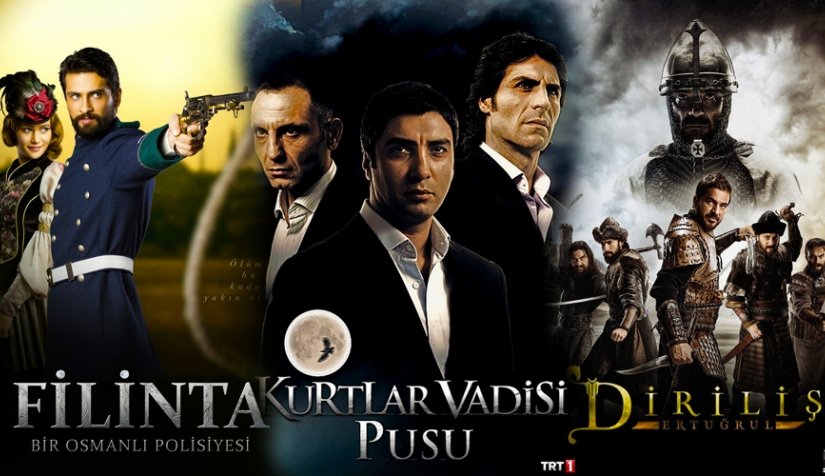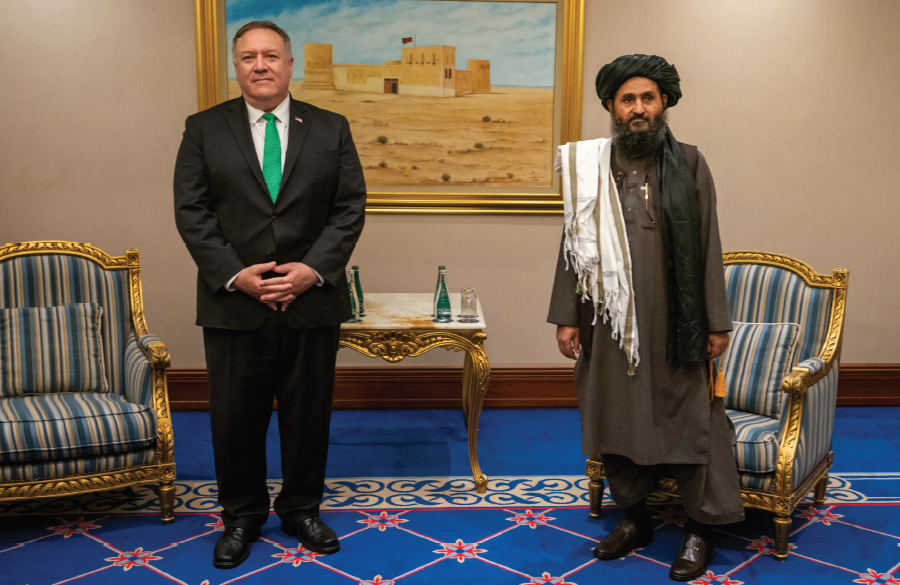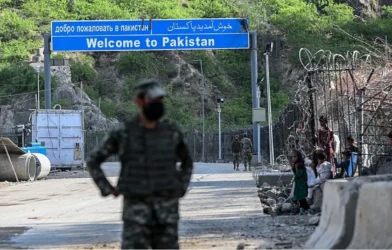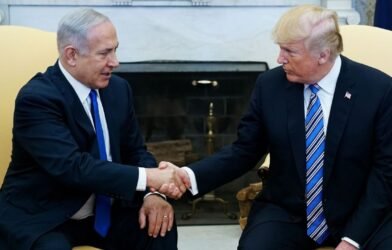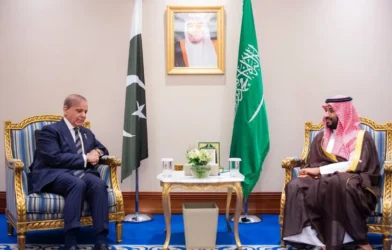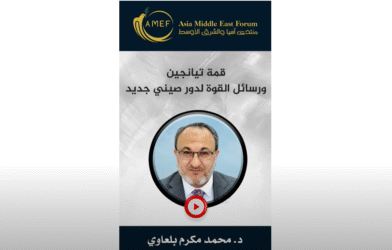Subtotal $0.00
The Ottoman personality needed to be reshaped in accordance with the new approach adopted by the founders of the Turkish Republic, a secular approach that sees Islam as an unnecessary ritual, belief, and law in light of the adoption of a secular outlook that turns its face to the West to draw from the promised source of progress and advancement and turns its back completely on the Levant with all its history and associations.
The main tool for molding the new "Turkish" personality after education was culture and the arts, and one of the first cultural measures was to change the Ottoman letter from an Arabic letter to a Latin letter, delete as many Ottoman Turkish words as possible to replace them with words with Latin roots expressing the desire for development, or use less common Turkish words as an expression of transcending the Islamic stage to formulate the national stage with a European face, and perhaps this kind of changes occurred as early as even before the collapse of the Ottoman state through the efforts of poets, writers and artists who had Masonic and Western affiliations and contributed visually.
This continued at a higher pace after the establishment of the Republic through written and audio media, and later visual media such as cinema, and later television, this small screen that invaded every home and left its deep impact on shaping the viewers' vision of the universe, self and society, almost completely stripping the people of their heritage and culture until the manifestations of Westernization in Turkey exceeded many of the Western countries themselves, without the sweet fruits promised for this change, such as independence, progress and prosperity. The country remained a pawn of American policies, prices rose and commodities became scarce, and the scientific and economic margin between Turkey and Western Europe remained wide, while Turkey is chasing after it to join the European Union and Europe turns its face away from Turkey as if it were an incurable infectious disease from which there is no cure.
The wave of cultural change
But the Turkish people's attempts to preserve their culture and adhere to their heritage have not ceased despite the fact that the voices of their owners have been muted for more than half a century, but have often risen and then faded through Menderes, who fell victim to a military coup and was executed, then Erbakan, who was ousted by another coup, Turgut Ozal, and finally with Recep Tayyip Erdogan and his Justice and Development Party (AKP).
The AKP's rise to power represented a real desire by the conservative masses who voted for it to reassert themselves not only through the ballot box but also through culture and art. Many topics that were taboo became open for discussion, and the archives were returned to rediscover Islamic and Ottoman history in particular, not only through academic research and press coverage but also through literary works of poetry and prose, and finally through television dramas.
Counter-narrative
This conservative current in Turkish society and the Turkish state had to put forward its counter-narrative to the Kemalist narrative that was put forward and adopted after the overthrow of Sultan Abdul Hamid II, which depicts not only the reality and the future, but digs up the past and revives and reshapes it if necessary, in line with the vision of those called today the "new Ottomans" who aspire to restore Turkey's role as the heir of the Ottoman Empire and put it at the center of international politics, which is reflected through drama in general and television in particular because of its spread and ability to influence it.
In this context, a number of series were produced, the most important of which are three series, Valley of the Wolves, Qiyama Ertugrul, and finally Valenta, which we will address quickly to identify their most important features and their relation to the previously discussed project.
First up: The Valley of the Wolves (Kurtlar Vadısı)

The Valley of the Wolves series is one of the oldest series produced in this context, which was first shown in 2003, directed by Osman Senaf and produced by Necati Shashmaz, and ten parts of this series were produced and three films were produced from it as well, and it has two dubbed into Arabic, one Syrian and one Iraqi, and met with unparalleled demand in Turkey and the Arab world, but the popularity of the series gradually began to decline, and the series deals with the subject of hidden evil forces that want to harm the unity of the country and the well-being of its residents by calling internal and external plots, in a framework of drama, suspense, thrills, and detective adventures.
Second: Diriliş Ertuğrul

The series began airing on the first Turkish channel TRT1 as of December 10, 2014. Produced by Mehmet Bozdag, the series is the biography of the father of the founder of the Ottoman Empire, Ertugrul bin Suleiman Shah, and evokes the march of the Kaye tribe from the Oghuz tribes who migrated from Central Asia to escape the Mongols and famines in search of pasture and safety until they reached what is known today as Turkey, which represented the beginning of the actual establishment of the Ottoman Empire.
The drama is a historical thriller depicting the struggle of the Seljuk state against the Mongol and Crusader attempts to control the region, especially Jerusalem, and Ertugrul's efforts, under the spiritual guidance of Sheikh Ibn al-Arabi, to repel these two attacks.
III: Fılınta

The series is named after an Ottoman police officer who was adopted by a judge in charge of the Galata police station (a neighborhood in Istanbul) after he found him as a small child in front of his door, and later joined the police force and represented a chronic concern for the gangs that wanted to involve the Ottoman state in regional wars in order to drain it and eliminate it, for many reasons, including criminal, nationalist, and religious reasons.
Semi-declared policy goals
- First: Fostering a sense of patriotism
It is easy for the observer to notice the national dimension that these series are trying to promote in a country that is facing difficult circumstances in its regional and international surroundings these days, especially in light of the growing separatist war in the southeast of the country with Kurdish forces supported from abroad, which weakened the social and political fabric in the country, here is the need to recall history and support the idea that unity is the only way to survive the enemies of the nation and those who are trying to corrupt the relationship between the sons of the one nation and hit each other. One of the signs of creating this collective sense of patriotism is paying attention to symbols such as the flag (birak), the tent that symbolizes the homeland and the unity of the people, and the sword that symbolizes armed vigilance that is always ready to defend the oppressed wherever they are, regardless of their cultural and ethnic backgrounds, as is the case in Ertugrul's Resurrection.
It is not surprising to see President Recep Tayyip Erdoğan (al-Ustaş/teacher as the Turks call him) and Ahmet Davutoğlu (Khoja/professor in Turkish) visit with their families the set of the series, the heroes of the series are invited to a Ramadan breakfast at the president's banquet, two of them participate in the celebrations of the conquest of Constantinople and receive as much welcome from the audience as the president himself, and the music of the series becomes synonymous with the president's presence at public events. The show's theme music becomes associated with the president's presence at mass events, and a great controversy arises in the local press and even in the parliament about the funding of the state television TRT for the series Velenta, which is clearly biased towards Sultan Abdulhamid II, on whom the Union and Progressive Revolution was based, in the amount of five million dollars per episode, as reported by Cihan News Agency.
- Secondly: Awakening Islamic sentiment
It has become common to see President Recep Tayyip Erdogan reciting the Holy Quran in semi-official ceremonies, and Turkish politicians using Islamic expressions and prayers in their speeches. What caught attention during the recent Victory Day celebration of the Turkish Armed Forces was that for the first time since its establishment, he opened the ceremony with verses from the Holy Quran. This was previously considered taboo, as well as the approval of the study of the Quran and the Sunnah in the curriculum of military colleges as an optional subject, the construction of the Tashmiga Mosque, which has a capacity of about thirty thousand worshippers on a hill overlooking the Bosphorus in the Asian part of Istanbul, and the accelerated manifestations of religiosity in the state and society.
In contrast to other dramas that only see religious people as dervishes and extremists, the protagonists of this type of series are religious people who often raise their hands in prayer, pray, kiss the Holy Quran, place their palms on their hearts as a sign of respect at the mention of the Prophet Muhammad, and recall the stories of the Holy Quran and the Sahaba in the context of guidance and advice.
In the battlefield, takbir is often heard from the mouths, and when the good guys are killed, the value of martyrdom and paradise is invoked, and funeral prayers and Islamic burial and supplication are represented. In Qiyamet Ertugrul, for example, we see the figure of the spiritual guide Sheikh Ibn al-Arabi playing a central role in the course of the series and his influence on its heroes who are in turn religious people like Artuk, Bamse and Ertugrul himself, and Judge Qiyasuddin almost plays the same spiritual and religious guidance role for our protagonist.
- III: Justifying Turkish leadership of the Islamic Ummah
These series present Turkey as the defender of Jerusalem and Al-Aqsa Mosque, the symbol of Muslim unity, and this meaning was present in all three series, in Qayyama Ertugrul in great detail as the Kaiye tribe stands against the ambition of the Templars and their conspiracies, and the same idea is restored in a brief form in Velenta, while in Valley of the Wolves it has a long talk.
The Turks deserved leadership not only because of their strength, overcoming enemies and protecting the Holy Land, but also because they are the custodians of the Prophet's heritage, represented by the Prophet's Burda and the copy of the Quran of Uthman bin Affan (may God be pleased with him), which qualifies them to lead the Islamic nation in one way or another. This is what is evoked in the series Villenta when the Quran of Uthman is stolen and then quickly recovered to reinforce this meaning, which must be present in the minds of those behind these series, and is strengthened by the governmental trend to establish government and civil institutions that bring Muslims together under religious, cultural and charitable headings.
Common negative traits
- First: excessive violence
These series, despite the different historical background, are characterized by excessive violence. This may be a reflection of attempts to imitate Western films, especially American ones, in the belief that this type of drama attracts more viewers, and not necessarily an expression of the culture of the Turkish people. Indian films, for example, are full of exaggerated and sometimes laughable violence, contrary to the culture of the Indian people, who are characterized by tolerance and peacefulness.
We can observe in The Resurrection of Ertugrul the extent of the violence practiced by the good guys, Ertugrul and his companions, on the captives who fall into their hands, including torture and humiliation, as well as beheading and other methods of violence, while the bad guys' aggression has no limits, and it is enough to see in one episode dozens of dead people who fall like flies without calculation, which is also the case in the series Villenta, in which the number of deaths in one episode is not less than eight in the weakest cases, other than cases of crucifixion, stabbing, slaughter, sniping and all kinds of killing.
In one of its randomly selected episodes, the protagonist of the series, Bulad (Murad) Alam Dar, destroys the gang by kidnapping the assistant of its head and in order to get information from him, he cuts his hand with a chainsaw and installs a time bomb in place of the severed hand while the criminal is under anesthesia. He also intercepts the head of the gang's secret council and interrogates him and gouges out his eye with a knife, then sneaks into the gang's den and opens the door, which opens with an eye print, with the eye that he gouged out, then he puts on the invisibility cloak of the gang's council, which is gathered for the purpose of selecting the leader of the armed arm of the gang. He puts on the disguise of the gang council, which is gathered for the purpose of choosing the leader of the armed arm of the gang, and when the choice falls on the designated person, Alam Dar puts poison in the cup that everyone will drink from and they die immediately, then he kills the last one by stabbing him with a sword, a clear stab that penetrates his stomach to take the sword out of his back, after which the hidden gang leader appears in his office on the display screen to threaten Alam Dar, so he only detonates the bomb that was planted where the severed hand was after he made sure the assistant leader has it, and the leader dies and all the gang comes to an end.
The producers of these movies seem to have no issue with the amount of violence they show, as it may be morally justified from their point of view, if it is practiced by good people or practiced for noble purposes against bad people, which, while compatible with Western materialistic culture, is contrary to Islamic culture and Islamic teachings that command mercy and compassion and avoid unnecessary violence, even with enemies and even with animals.
- Secondly: Conspiracy theory
A perusal of the literature of the conservative political movement reveals its firm conviction that the collapse of the Ottoman state, which represents its model, was the result of the conspiracy of a group of local and international forces that sought to destroy the unity of the "Ottoman nation," stir up religious and nationalist passions, cause economic and security collapses, drag the state into losing wars, and threaten its territorial integrity. These forces, in addition to the European colonial states and Russia, were headed by secret and semi-secret organizations such as Freemasons, Zionists, Templars and Turanian organizations.
This conviction is so widespread in all series of this type of drama that the entire plot is almost based on it, as the conspirators are spread everywhere and may be among the closest relatives who claim to be good and patriotic, only to discover later that they are conspiring with the enemy for their narrow interests, or that they declare Islam and hide the opposite and their first concern is to destroy and eliminate Islam, as is the story of the Knights Templar that revolved around the first season of Qiyamet Ertugrul.
The immunity of individuals in these series against projection and collaboration is almost non-existent, as it is easy for men and women to fall into the trap of labor and betrayal by the simplest methods, as happened, for example, in the series Villenta with the headmaster of the interior, who was the victim of a projection operation carried out by the leader of evil in the series, Boris Zaharis, who seemed to have powers beyond even the most powerful intelligence services of colonial powers such as Britain and France, as well as the Ottoman intelligence service, which was recognized as efficient and effective at the time.
- Third: The superficiality of dealing with major issues
Although these series raise major issues such as the greed of European powers for the lands of the Ottoman Empire, which was then nicknamed "the sick man," the conflict over oil sources, and the manipulation of minorities and using them as a tool to weaken the state, these issues are presented in a superficial and sometimes humorous manner. Sultan Abdulhamid II, who is known for his shrewdness and erudition, relies on the Galata Police Department, led by officer Mustafa Vilinta and his boss, Judge Qiyasuddin Khatami, to solve all the dilemmas facing the state, while other institutions are paralyzed and unable to provide any assistance in this field, including the famous intelligence service that the Sultan established after his accession to power.
Conclusion
Turkish drama was able to impose itself at the global level, where it ranked second, and constituted an important source of national income that amounted to about six hundred million dollars last year, which is a large amount by third world standards, and despite the monopolization of a certain direction for Turkish drama, new high-quality series began to appear that attracted a large number of Turkish viewers and in many parts of the world, reshaping local and international awareness towards Justice and Development Turkey that is reconciled with its history and environment, and despite the negatives that appeared in this type of series, this does not detract from being a success story that drew attention and won the admiration of many.



